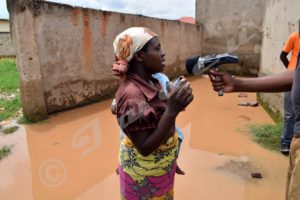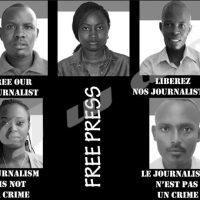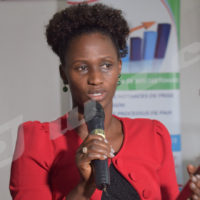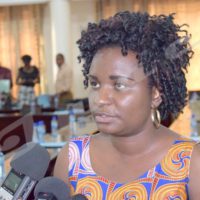Burundian women journalists say they are not sufficiently represented. They accuse media officials of underestimating them. The Association of Burundian Women Journalists calls on media officials to increase the representation and participation of women in the media.

Women who participated as resource in Burundi media represent only 40%
The number of male journalist is far superior to that of women, Agnès Nindorera, Chairperson of AFJO said on 11 October. The study conducted by the National Communication Council (CNC) reveals that male journalists represent over 82% while women represent only 17.9%. The same study reveals that women who participated as resource in Burundi media represent only 40%.
The chairperson of AFJO said in the meeting held in May 2017 that some media officials were still unconvinced that women and men have the same ability to work. They say women are fragile and cannot conduct a fieldwork like men, hence preferring to recruit more men than women, says Nindorera. “Women are capable. They have attended the same schools as men, so they have to benefit from the same advantages at work,” she says. She calls on females to break with sexist prejudices. She encourages women journalist to show that they are capable.
In Burundian culture, women’s importance is minimized. Burundians consider that women are capable of some household chores that do not require much effort and reflection.
Jérome Ndikuriyo, Director General of Communication, said the number of women occupying posts such as Director or Chief Editor in media varies between 0% and 40%.
Women journalists are underestimated at work
Yvonne Munyaneza, a journalist at Radio Rema, accuses media officials of taking women as lazy and incapable of working. “I personally believe that I am able to do a good report on ground, even in Somalia. But I’m convinced my editor cannot trust me. He will say that women cannot do battlefield reporting, “she said. For her, these are prejudices that everyone should break with.
Fidélite Ishatse, a journalist at the Radio Voice of America, deplores the fact that the majority of Burundian journalists do not consider gender parity when reporting. “Rarely do I hear women express themselves in the media,” she says. She calls on journalists to interview both men and women.
Edouard Nimbona, Executive officer at the Iwacu newspaper, believes that women should not be discriminated in their media. “They are as intelligent and responsible as men,” he said.
However, he finds that in some activities and jobs, women need special treatment. He says Burundians’ mentality and culture require men not to expose the lives of women.


















 IWACU Open Data
IWACU Open Data

